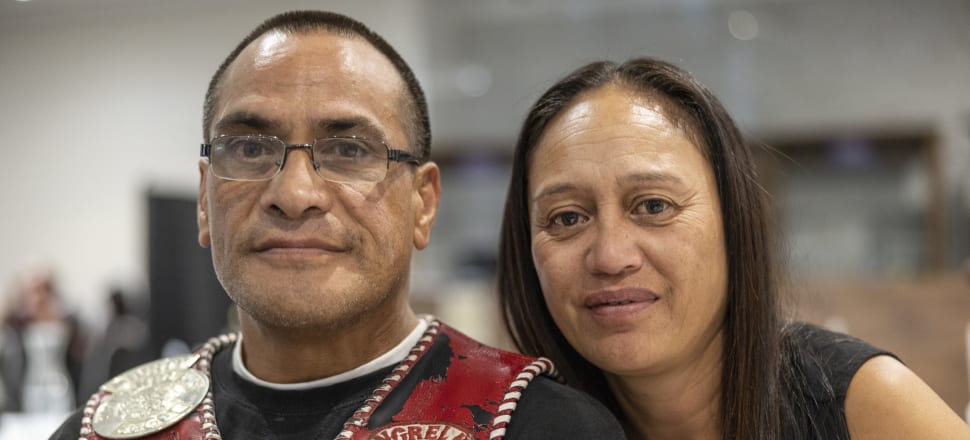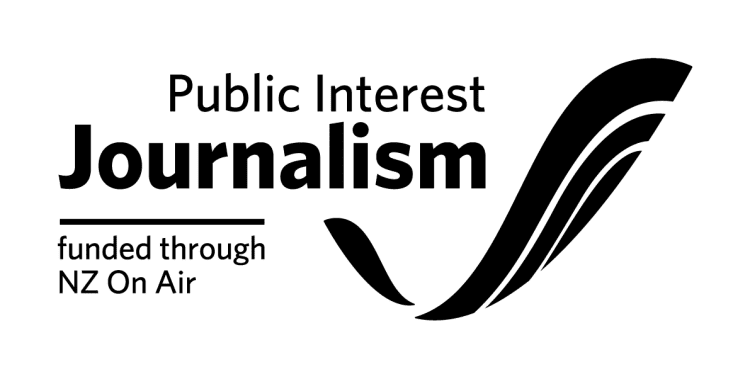
The Royal Commission of Inquiry into Abuse in Care sat down with around 200 gang members to talk about what they'd gone through in the welfare system when they were children. Aaron Smale reports.
Charlie Bellas was a kid when he walked across the Auckland Harbour Bridge on his own. He didn’t even know there was a harbour bridge when he left Dargaville, running away from home. His father was violent, but Bellas ended up in a more brutal environment when he was put in the Owairaka Boys' Home. Instead of helping him leave behind the life he was trying escape, it pushed him further into violence, gangs and prison.
“I had heaps of hidings from the old man. My dad ended up in prison at Mt Eden and that was my chance to take off as a kid. I ended up in Dargaville, whangaied out to my father’s sister. I didn’t like it there, so I packed my bag and hitchhiked from Dargaville to Auckland. I was about 13. I just wanted to get away. I didn’t know where I was going. I didn’t even know there was a harbour bridge so I ended up walking over it. I walked over the harbour bridge but I think the police thought I’d jumped off. I ended up in Aotea Square with the street kids. There’s quite a few guys here today that were around then.”
READ MORE: * A structure of impunity * Quarantine and punish - our response to trauma
Bellas was one of around 200 gang members who attended a hui in Manukau called by the Royal Commission of Inquiry into Abuse in Care.
“The police youth aid would pick us up and take us to Owairaka. We were treated pretty bad in there. Abused. We used to get bashed all the time. Even sexually as well. There was a lot of violence in there. Everyone was trying to be tough. I used to run away. ”
He said it was a natural progression from there to prison and gangs. He joined the Mongrel Mob but all of the major gangs have a lot of members who went through the state welfare system.
“Quite a few of us went down that path. I’ve got a brother, he’s a Head Hunter. Another brother is in the Black Power. And I’m in the Mob. They’ve all been down the same thing. Boys' homes. Streets. Prison.”
He said he doesn’t know why his father was violent, but he heard that he’d been through Oakley psychiatric hospital.
“He was the founder for the MKs, Mangu Kaha, in Taitokerau. I was only little, so I’ve been around gangs all my life. He did quite a few years in jail. About 30 years I think. That’s probably how much I’ve done too. What I saw in my life growing up, that’s all I knew: gangs, jail. My mum told me he was in Oakley (hospital). It’s called the Mason Clinic now. I don’t really know why he was in there.”
While the commission is on the home strait, chairperson Coral Shaw said it was crucially important that the inquiry hears from gang members who suffered abuse as children in the custody of the state and the church. The hui was organised by think-tank Hikoi Nation.
“It will not be the full story if it doesn’t include the gang story,” Shaw said.
Fete Taito, facilitator for the Royal Commission, said many gang members carried around the trauma from their childhoods in state custody and it shaped their attitudes and behaviour. He said many had a hatred towards society because of the abuse.
“That society put us in there.
“The bullshit that they did to us, we’re still living it today. We haven’t separated it out and put the trauma on the shelf so we can deal with it later.”
Bellas did major stints in jail, one for leading 14 police cars on a chase around Auckland, and another for attempted murder. He said violence had become so normalised for him from a young age that he couldn’t see the need to change. He spoke about his partner Piki, who he met at a kapa haka group, who has stood by him for over 30 years and helped him to change.
“I’m getting older and wiser now. My wife Piki, I met her when I got out of prison in 1993.
"It was for a high-speed chase. I had a stolen vehicle and I made the police chase me around the whole city, from Ponsonby down to Pt Chev, around Pt Chev to Mt Albert, Mt Albert to Mt Eden, then back into Queen Street. I probably had about 15 police cars chasing me. I had a few of my bros in there and they were King Cobras and I was the driver."
That was the start of 30 years in and out of jail.
"I only just recently got out of Pare (Paremoremo Maximum Security Prison). Finished 17 and half years. That was for I shot somebody. He survived but I got done for attempted murder.
“Violence was the norm. Nothing else worked for me. Jail was my university.”
Bellas’s partner Piki says it’s taken him decades to recognise the trauma he’s been through and start changing how he deals with it.
“He wasn’t a gang member when I met him. My family were Mob. We met at kapa haka. We were teenagers. Kapa haka was everything. We had kids and then some traits of his started coming out. He’d go to jail and come out even worse. We had three boys one after the other and I was raising them. His trauma got worse. I just wanted a family but everyone who got out of jail just went to him. It was horrible.
“That trauma he passed down to us. In the last long lag I thought, far out, he really doesn’t know what family means. He really doesn’t know that he’s been through trauma. He thinks this is what every family was like. Every time we would fight he would say, this is how it is, this is how families are. Don’t try and change it. That’s the way it is. That’s when I thought, shit, I’m in trouble.”
She said he has recently started to recognise what he has been through and how he needed to change. But Bellas said if Piki hadn’t stood by him for 30 years, visiting him every week, he wouldn’t have made those changes.
“If I don’t change I’ll end up dying in jail.”
One speaker at the hui said it went against the grain to come and talk about what had happened because they had learned to stay silent.
“We came from a world of no comment. Especially no comment to the system. No comment. No comment. No comment. So it’s swimming against the current to come here.”

Francis McLaughlin, from the Mongrel Mob’s Notorious chapter, said many victims of abuse had died never seeing any justice because the state had never taken full responsibility. He said gangs were always being vilified but those who perpetrated abuse against them when they were children were never held accountable.
“How can the paedophiles and abusers dictate to us what the punishment should be.”
One female speaker talked about her two uncles who went through welfare homes in the 1950s.
“That’s where they learned to be angry. They’ve been angry all their lives.”
Ken Clearwater, who leads the group Male Survivors of Sexual Abuse, said he had noticed over years of advocacy how little support there was for Māori and Pacific men who had been sexually abused when they were children. He said despite this he was told by both National and Labour governments that there wasn’t any need for an inquiry.
He says men who had been sexually abused as children often harboured incredible anger.
*Made with the help of NZ on Air*







